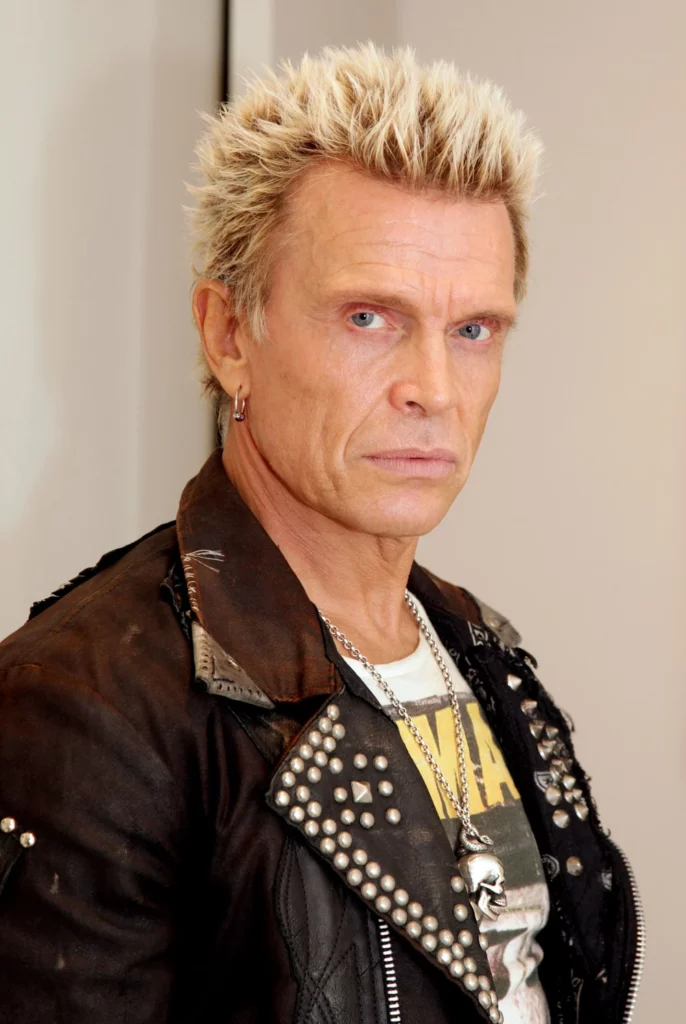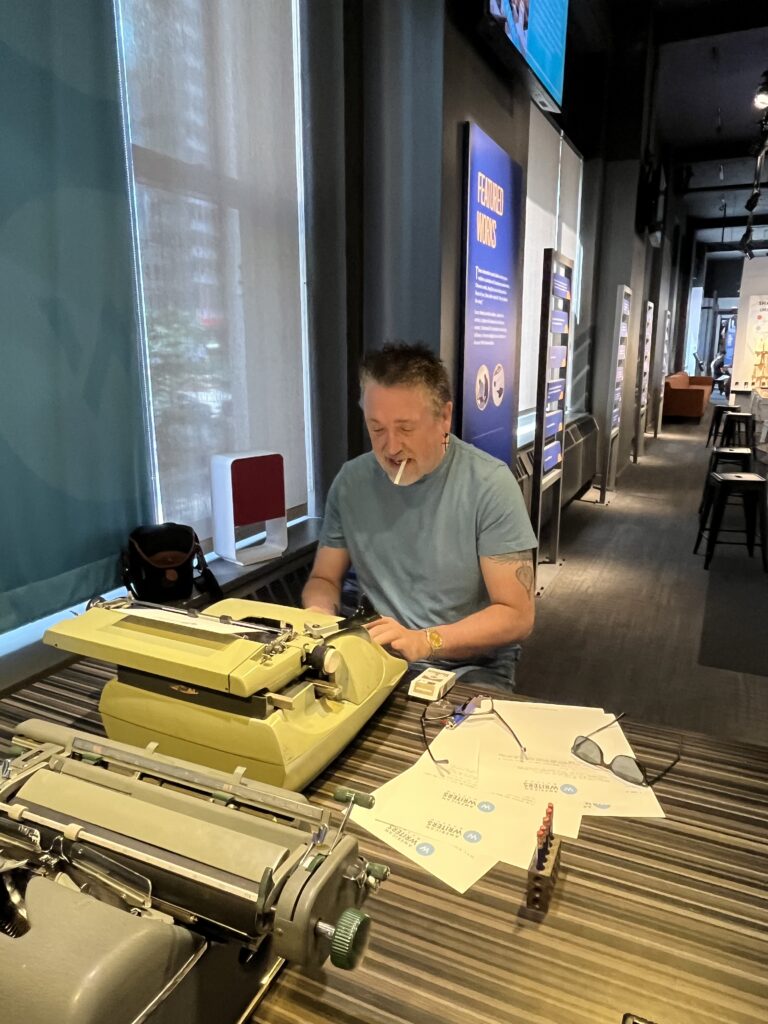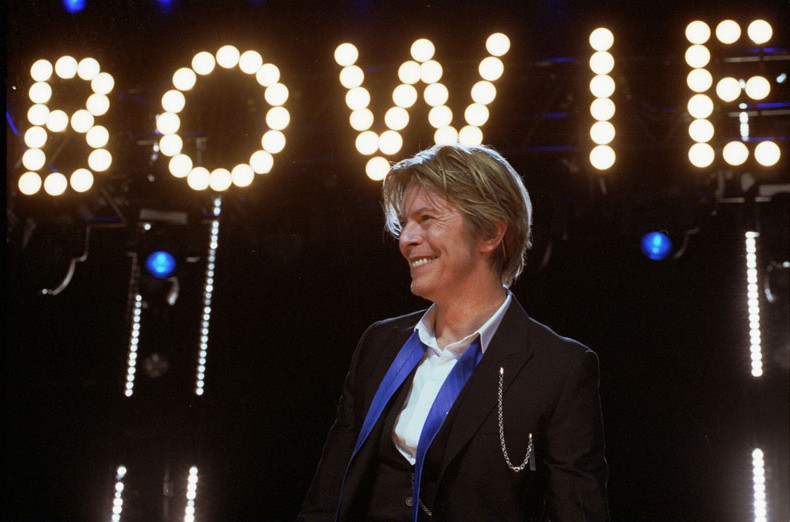To make David Bowie to be a saint or a sinner is to not understand that life exists in the nuance of neither. There are important messages in his art, but also his life. In many ways, Bowie has served as an example of acceptance, intersection, and living life on your terms. As a parent, as an ally, and as a writer, these are lessons I have needed since a young age.
Discovering Bowie
I first noticed Bowie when he was being interviewed by MTV. I wrote about this interview a few months ago in “I Want My MTV to be Less Racist.”
MTV was new and exciting. He was challenging VeeJay Mark Goodman about MTV’s lack of black musical artists. Goodman, instead of agreeing with the obvious, doubled down on the assumption that black artists were not what the kids of America wanted. Bowie doubled down logically on how asinine a position Goodman and MTV were holding to.
This was my first experience of what an ally is and how important intersection is. I did not know Bowie was part of the LGBTQIA+ community at this point. All I knew is that he was speaking about black artists and children even though he was neither. Before making his points, he did his research and he did not take excuses and suffer fools gladly. There was another thing that he did that was noteworthy. He did not try to lead the charge on behalf of another race. There are a lot of well meaning white progressives today that try to speak for a group and not stand with a group.
What he did here was point out to another person of his own race that there was a problem in perception and representation. He was factual, he was deliberate and he was well thought out.
Art As Social Statement
In high school I was an avid reader of National Geographic, Life Magazine and the Chicago Tribune. It was about the photojournalists for me. I understood how a photo could tell a story and change perception and understanding.
I did not yet realize the power of social statement in the arts. Then I saw a David Bowie video on MTV. It was called China Girl. I remember being uncomfortable with it visually and lyrically. I could not put my finger on it, but it felt different.
A few weeks later I bought the “Let’s Dance” album at my favorite record store in a local mall. After a few listens and the liner notes I realized something about the song. It was intentionally racist to how white men with Asian fetishes objectify the woman in a possessive manner. The man also destroys her culture. It was an uncomfortable and deliberate to make a point. While there is interracial love, this was about a reductionist fetish of colonizing by western men.
Music as protest, social message, and change would lead me down a rabbit hole of discovering artists who’s work included message for change just as, if not more, profoundly as photojournalists and OP/ED could.
Social music, poets, painters and so much more would come to life in front of me. I discovered social art makes a difference, carries a message and challenges us to face what is broken in the world to change the world.
Queer Views in the 80s

In the 1980’s, on the rare instances we showed queer people in the silver and small screen, we portrayed them as caricatures. They were either comic relief or dangerous or diseased.
AIDS was known as the gay cancer. In America we wanted to quarantine people with AIDS and we felt gay people and gay sex was dangerous, scary, and immoral.
In my homophobic 1980’s suburban high school setting there were actors and musicians that people loved to tell folklore rumors about. One of them was David Bowie. He was gay, he was bi, he was a “gender bender”. David Bowie, Liberace, Freddy Mercury, Elton John, Boy George and others were less because they had sex with men. The jokes about gay people abounded while the western world did more to shame the AIDS epidemic than to help and assist with few notable exceptions.
As I was becoming more interested in music, my magazine reading started to include Rolling Stone, Creem, and the occasional issue of Playboy if there was an interview making a buzz (the articles were actually a thing). Bowie had been out as bi since 1972. A scant few years after Stonewall and only a short time after being gay was no longer punishable by law in the UK. There was no scandal or secret. The reason it was not in our conscience all the time is his sexuality, rightfully so, was not his defining characteristic. It was only a titillating fact to those who were afraid of it and hate what they do not understand.
Where Bowie would only mention sexuality as a fact of his life and celebrate artistically, the media made his sexuality scandalous for ratings.
His bold portrayal of gender fluidity would inspire many artists, LGBTQIA2S+ people and have an affect on an entire industry. Just by living his life authentically he paved a path for others like him. His sometimes indifference and other times fierce pushback to the salacious and hateful would diminish their power.
The Takeaway
At the end of every article we publish I include the words, “Stay totally awesome! Stay true to you!” This is sincere.
It is unimaginably difficult for some people to stay true to themselves. This is not because they are weak. It is because this world can be so very cruel. Believing you are totally awesome is hard as well for the same reasons. The world has cruel people. But I do think you are totally awesome as you are and I hope you can stay true to yourself in this cruel world.
If you can suspend disbelief and believe that you are awesome, you can be yourself. And maybe we ain’t Bowie, but we are ourselves and that can inspire others to be themselves. This is a power I understand well. I hold no secrets about my trauma and my wounds. I do not shut up about it and it helps others while I get to be me and love that as it is even when it is messy.
The other takeaway. Don’t be afraid to use any privilege you have to speak against power in a manner that the people you love are not able to. But also remember there is a line. An ally stands with and among, but does not lead the charge.
A Billy F**king Idol Cameo!

I will turn the closing section of the article over to Billy Idol. I can think of no better summation of what a life lived authentically that stood for others and used his privilege responsibly.
Billy Idol released the following statement in the wake of Bowie’s passing.
“In this age of grand illusion you walked into my life out of my dreams.”
David Bowie was a beacon of light to young people in Britain’s socially disturbed & turbulent economy of the early 1970’s. He paved the way for Punk rock as he took an uncompromising stance against the conservative viewpoint of much of the intelligentsia of the day, and whether it was for gay rights or a fight for artistic freedom, or the right to state your case about the world, Bowie’s music led the way.
Not willing to be controlled by the artistic norms of the day he introduced many art forms into his world view…mime, dance, kabuki theater, film and character driven personas that broke new ground in rock music beset by others whose vision was limited to only one genre of music, art or film.
His sound & vision woke up this young Bromley boy & showed me that to strive for an artistic life was valuable & was a goal to reach & once attained, new vistas and new worlds would open up. Beyond a visionary, he was a prophet, and his influence will be felt as long as recorded music is still heard and many people’s struggle against social oppression is still being fought.
He was a giant on our scene engaged and genuinely interested in other artists reaching out in a way that made me, and I’m sure many others, feel like we were talking to a friend that cared deeply.
– Billy Idol
Support Gen X Watch!
We rely on readers like you to continue our work. A few moments and you can make a difference:

1. Share this story with a friend and leave a comment.

2. Tip me! I need your support!
Half of all tips in June go to support queer causes!
3. Become a Members Only Patreon! In the Patreon I will have unfiltered rants, exclusive content, free PDF copies of the upcoming quarterly magazine, and more.
4. Go to our store and buy the print magazine! It is art, news, and nostalgia that matters!
Thank you for your support and taking the time to read this.
Stay Totally Awesome! Stay true to you!

Leave a Reply